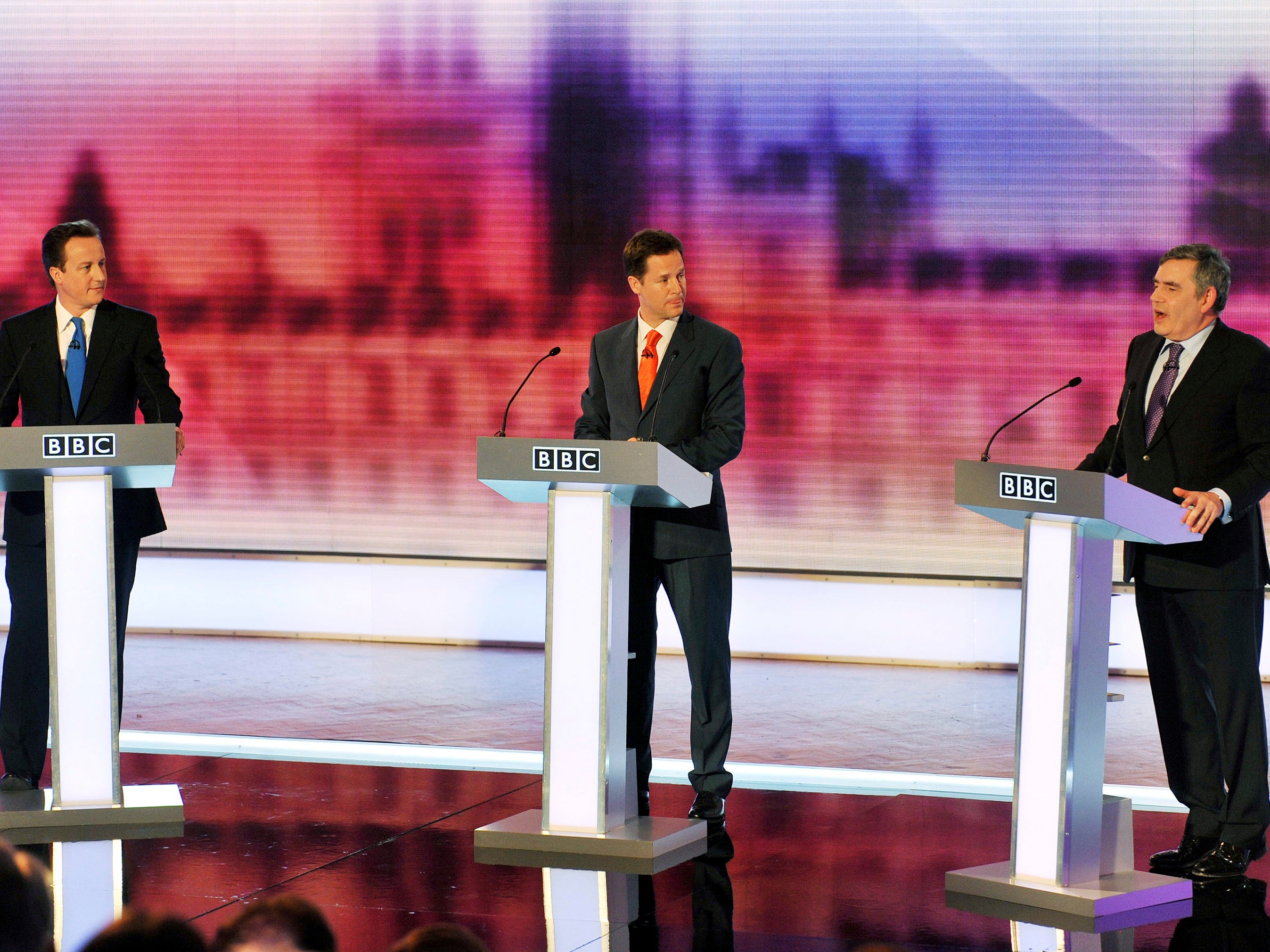
The Government has snubbed a campaign by Sky News to make televised election debates a permanent fixture of any general election.
Sky News launched the Make Debates Happen campaign last month calling on the Government to establish an Independent Debates Commission to take the “decision-making process out of the hands of political parties” and ensure party leaders take part in a television debate ahead of each election.
In its response today, the Government said it has “no plans” to change electoral law to make TV debates mandatory.
A Sky News spokesperson told Press Gazette the campaign will continue nonetheless.
They added: “We look forward to reaching 100,000 signatories and seeing the issue brought before parliament and will continue to press for the creation of an Independent Debates Commission to oversee the process.”
Sky News has said three “genuine” leaders’ debates took place in 2010 between David Cameron, Gordon Brown and Nick Clegg (pictured).
However there were no head-to-head debates before the 2015 or 2017 general elections after broadcasters and politicians failed to agree terms.
In 2015, there was a seven-way debate between former Prime Minister David Cameron, Labour’s Ed Miliband and the leaders of smaller parties, but no head-to-head programmes with the main party leaders.
Last year Theresa May refused to debate with Labour leader Jeremy Corbyn or other party leaders, resulting in then-Home Secretary Amber Rudd taking her place.
A petition set up on the Parliament website by Sky News head of newsgathering Jonathan Levy has received more than 46,000 signatures in just over four weeks.
Parliamentary petitions must gain 100,000 signatures within six months in order to be considered for debate in Parliament.
The Government said today that “television election debates are a matter for political parties”.
It said the proposal would have to be considered “in due course” by political parties ahead of the next general election, currently scheduled for May 2022.
May has told Sky News “there’s plenty of time” to think about the issues before the next election.
The Government said in a statement: “Televised election debates took place in the 2010, 2015 and 2017 UK Parliamentary general elections.
“They form one of many mediums that enable political parties to convey their message to members of the public and address key challenges.
“Televised election debates are not mandatory under electoral law. Participating in a televised election debate is down to the discretion of the political party invited to debate.
“The Government has no plans to change electoral law to make televised elections debates mandatory.”
The statement added that political parties are able to directly address members of the public in the run-up to an election with other mediums such as hustings or canvassing.
The Government also said there is no obligation for broadcasters to transmit election debates under independent regulator Ofcom.
Sky News editor-at-large Adam Boulton said last month the campaign needs a “wave of public support to convince the politicians to take the next step”.
“I think there is real enthusiasm behind the debate,” he said. “I think the danger is complacency, yes, of course they should happen, people think why wouldn’t they happen.
“There’s no doubt the Labour Party would love to see Jeremy Corbyn up against the leader of the Conservative party. With newspaper headlines saying we could have a general election this autumn, there really is no time to lose.”
Politicians backing the campaign include former Conservative cabinet ministers Amber Rudd, Nicky Morgan, Boris Johnson, top Labour MPs Jeremy Corbyn, John McDonnell and Tom Watson, former Lib Dem leader Sir Vince Cable, and Hannah Bardell on behalf of all SNP MPs.
Picture: Reuters/Jeff Overs/BBC
Email pged@pressgazette.co.uk to point out mistakes, provide story tips or send in a letter for publication on our "Letters Page" blog
